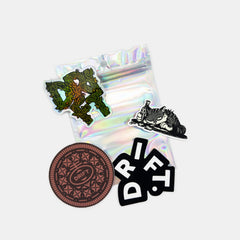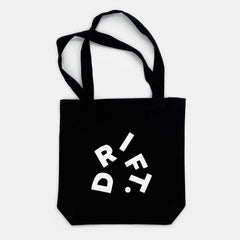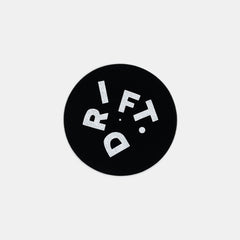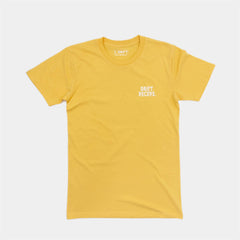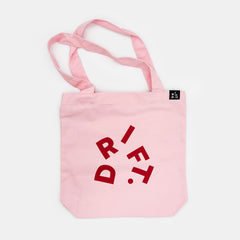

Quade - The Foel Tower
For their second album The Foel Tower, Quade secluded themselves in an old stone barn nestled within a remote Welsh mountain valley. Surrounded by the bleak, windswept landscape and minimal daylight, the band—Barney Matthews, Leo Fini, Matt Griffiths, and Tom Connolly—spent their nights huddled around crackling fires.
“There was very much a feeling of being on the complete fringes of society,” they reflect. “The last vestiges of settlement before the unrelenting barren moors that loomed over us.” This environment deeply influenced both the band and the record they created.
“A key theme of the album relates to why we connect with specific places in the way that we do,” the band explains. “We often remove ourselves to isolated valleys, sheltered from some of the painful personal struggles that we have experienced as a band. These become spaces in which we collectively purge ourselves of some of these difficulties, hoping to make Quade a physical and emotional place of solace. This album celebrates these places that we’ve been able to retreat to and recuperate.”
Working with producer Jack Ogborne and mixer Larry ‘Bruce’ McCarthy, the album blends a duality of sound—intimate yet powerful, introspective yet expansive. It’s a record that feels as detailed as it is open, capturing both fragility and strength.
The title also pays homage to the Foel Tower, a stone structure in the valley. It once served to regulate water flow to Birmingham, but also symbolizes the displacement of local farmers. The band explored this history, using it as a metaphor for ecological futures and the tension between urban life and rural practices. “It’s a record that, while personal and burdened, is ultimately hopeful,” they say.
Edition Info
• Black vinyl LP
Tracklisting
Side A
1. BECKETT
2. SEE UNIT
3. BYLAW 7.1
Side B
1. NANNERTH GANOL
2. CANADA GEESE
3. BLACK KITES
Released: 18th April 2025
Shipping & Delivery
Drift gladly ship all items Worldwide using Royal Mail Tracked®, FedEx and DHL services. There is a shipping calculator available in the basket. Read More
Click & Collect
Available on all orders from Drift. Select the Click & Collect option during the checkout process. Read More.
UK Free Shipping
We offer free delivery on orders of £90 and over, sent within mainland UK. To qualify for free delivery, your order will be sent as one dispatch. Read More.
Global Shipping & Tax
If you are based outside the UK and EU, all prices will appear without tax at the checkout. Drift is IOSS registered and collects tax on all EU orders at point of purchase. Read More.

Drift Extras
- Recently viewed



